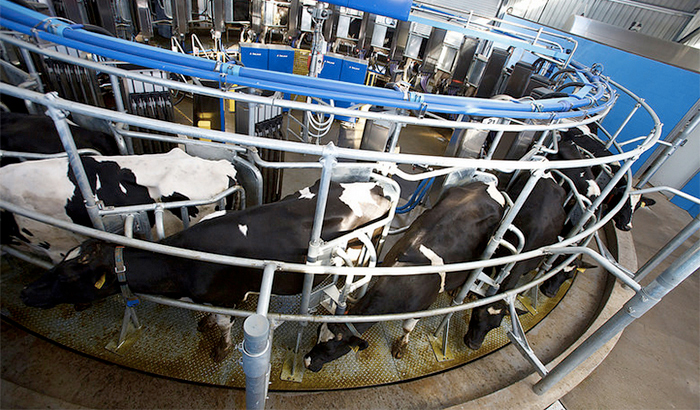
Milk production forecasts for 2015 in some key dairying regions have decreased because low farmgate prices are expected to start impacting global supply, according to the USDA.
Combined EU, US and NZ production is now expected to grow around 0.6% year-on-year, down from last December’s forecast of 1.3%.
This is due to reductions in the US forecast and an expectation of a fall in NZ production. The EU’s forecast has remained unchanged, with some growth (0.3%) still expected despite pressure on farm margins.
Whilst slower growth is better news, the latest forecast still equates to nearly 1.5 billion litres of extra milk compared to last year. Therefore it will take a bigger slowdown or a rise in buyer demand before the market comes back into balance to ease pressure on prices.
NFU dairy board chairman Rob Harrison said: "The currency situation, with a strong pound and weak Euro, means that importing cheese into the UK is going to be a real threat going forward. Let’s show British retailers and food service outlets that the public want British cheese, and that they want it clearly labelled and prominently displayed in store.
Government under pressure to act over dairy 'industry crisis'
Over the last three months a lot of work has been going on behind the scenes trying to find solutions to the current crisis the industry faces.
This has involved all the farming organisations working together. It has proved to be very slow and very difficult but no one ever pretended that to find long term solutions to the industry's problems was going to be an easy one.
Unfortunately a lot of this work has not been able to be shared with you our members due to sensitivity of the complexities involved in finding answers for both the short term and long term issues facing all sectors within the British farming industry.
"We had hoped that most people would have been patient but we understand the pressures that are put on business and family when income levels have fall to an all time low, and this has brought out some frustration amongst a minority of members," said Farmers' for Action group.
"We have plans for further open meetings in the North of England, the far South West and Wales to try and give as much information as is practical to let people know, not only where we are in this current negotiation but also to hear farmers' views and ideas of how we can progress forward."
